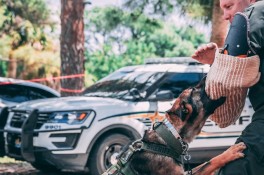Seven lions are on their way to declare Rwanda as their new kingdom, as they head to the Akagera National Park as part of the Rwandan government's efforts to bring back the King of the Jungle after more than ten years, the Daily Times Gazette reported.
Lions thrive in major parts of Africa, with its diverse flora and fauna that makes the continent conducive for predator habitation and making wildlife as one of its major tourist attractions.
According to Yamina Karitanyi, tourism chief at the Rwanda Development Board, the lions are a major development in rehabilitating the national park, and would provide a natural balance by keeping the ecosystem in check.
After the palpable genocide in Rwanda in 1994 that killed more than 800,000 people, Newsweek said that the lion population was severely affected as it died out.
Refugees from the massacre instigated by the Hutu majority sought shelter in the park, driving out the lions or were killed as they tried defending their territory. African Parks, a partner organization playing a role in the lion rehabilitation project, told the Empire State Tribune said that the park was neglected and cattle herders poisoned the lions.
The International Union for the Conservation of Nature (IUCN) has already ranked the African lion as "vulnerable" in its conservation status. The Western African lion on the other hand, is "critically endangered" due to over-hunting and declining game for these predators. Lions are also valued for their bones and body parts for traditional medicine.
The 112,000-hectare Akagera Park shares its border with Tanzania. It boasts of ample prey for the lions, and home to a variety of different animals.
As part of the conservation effort, the lions will be fitted with satellite collars so that zoologists could track their whereabouts, preventing them from straying into prohibited territories.
The seven lions that would occupy the park were selectively chosen for their strong potential to bear litter or sire offspring as well as for their sociability.
The seven lions are courtesy of generous parks from South Africa's KwaZulu-Natal province. This province is known for its considerable population of lions, and relocating seven of these magnificent beasts would not upset the ecosystem in any way.
© 2017 Jobs & Hire All rights reserved. Do not reproduce without permission.




